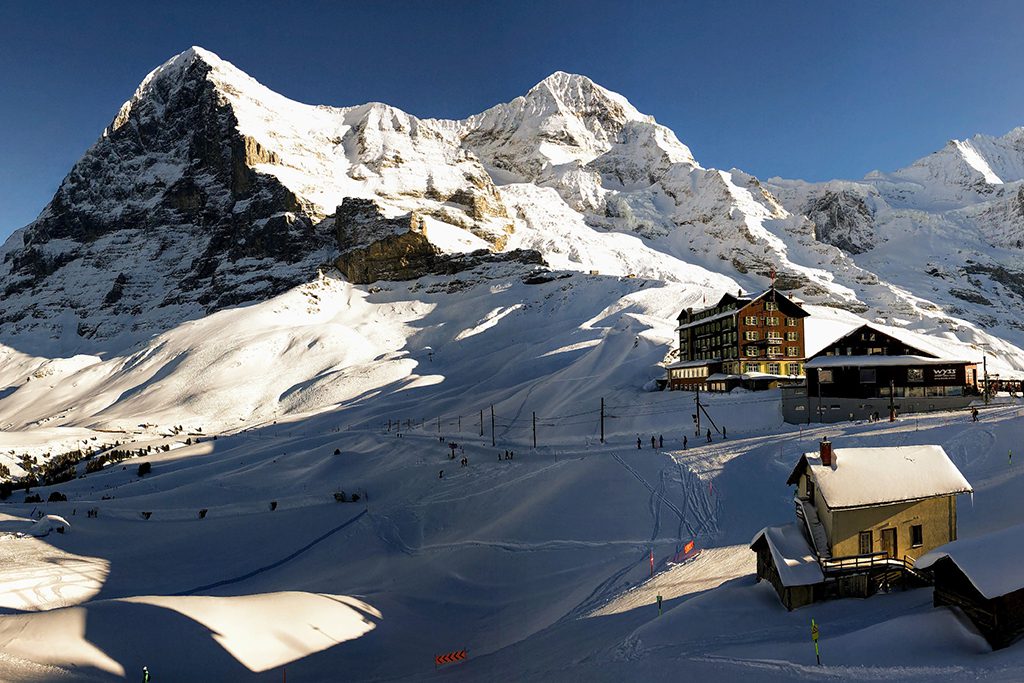New Skift Report: The Evolution of Winter Travelers and the Future of Ski Vacations

Skift Take
This sponsored content was created in collaboration with a Skift partner.
We’re publishing a new Skift Trend Report, in partnership with Club Med: The Evolution of Winter Travelers and the Future of Ski Vacations explores changing consumer preferences and delivers insights on where mountain tourism is headed next.
It’s an interesting time to be a skier: On the one hand, today’s traveler has an overwhelming amount of helpful information at his or her fingertips about the latest snow conditions, accommodation options, destinations, and pricing. Resorts have technologically advanced snow- making systems, new accommodations, and top-flight food and activities. Equipment is better than it’s ever been, and there are top-notch educational programs in many ski- centric destinations that make the sport more accessible and fun to learn.
At the same time, there are headwinds for the industry: Travelers are concerned about the cost of a ski vacation, and climate change has made predicting weather — and snowfall totals — a troubling proposition. Then there’s the logistical headache of planning a complex ski itinerary, something one insider recently described as “the schlep factor.” While all vacations require a bit of compromise and pre-planning, said Dan Sherman, the chief marketing officer of Ski.com, the fact that ski trips often include bringing the kids, a lot of gear, and drives into snow-blanketed regions often leads to an extra degree of difficulty.
So while the positives are plentiful, there are also many forces tamping down demand for ski vacations. Dedicated skiers, of course, still embrace the concept. Millennials and older travelers with a millennial mindset — two groups who place considerable value on experiences when compared to the traditional trappings of luxury — represent an underleveraged market with huge potential for the ski industry. And globally, there is a huge population of non- skiers — though the term “not-yet-skiers” might be the better verbiage, at least from the industry’s perspective, since “skiing and snowboarding are both easier, more intuitive, and more comfortable than at any other time in the sport’s history,” said Nick Castagnoli, brand and communications manager of Group Rossignol North America, a gear maker.
And so the global industry is at a bit of an inflection point, with much to entice existing customers, yet a need to draw even more newcomers to the slopes.
Some innovative providers are tackling these challenges head on. Club Med, for example, pioneered the all-inclusive model more than 60 years ago and heavily emphasizes the benefits of the offer to potential guests. “Club Med takes everything that is expensive and a hassle about bringing your family on a ski trip and not only handles it, but includes it in your package,” said one Club Med executive.
In this report you’ll find:
- Detailed analysis of the global ski market
- Data about market size and consumer sentiment regarding winter sports vacations
- Insights from key industry leaders including Henri Giscard d’Estaing, Sylvain Rabuel, David Meyer, Dan Sherman, and Laurent Vanat
- Primary data on traveler motivations and spending decisions, from h2\ and Nielsen
- Perspectives on the future of winter sports vacations
- Details on new winter resort openings and hospitality trends
This content was created collaboratively by Club Med and Skift’s branded content studio, SkiftX.




